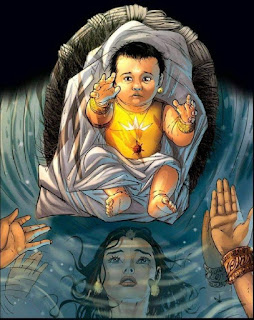Why We Should Reread the Mahabharata
The Mahabharat is the
longest poem in the world. It would take months to read it. However, reading it
can expand your mind. Unlike Ramayana, Mahabharata is an epic consisting characters
who are morally grey. On the surface, it might seem to be a typical war between
good and evil. This is how mainstream media has portrayed it, which is a great
disservice to the epic.
Our people are so
comfortable with binary lenses that they want nothing more than Duryodhana’s
evil laugh and Yudhisthira’s righteousness. It assuages them and enforces their
black and white worldview.
If one were to
read the text, they would find themselves facing a conundrum: Whose side should
I take?
Each and every
character had their own justification for what they did. Of course, their
actions were evil but what made them do it? It is easy to judge Kunti for what
she did to Karna, but she herself had little choice. For starters, she was given
a power at an age where she couldn’t take things seriously. She was a teenager
and like all teenagers, she was naturally curious and experimented with what
she was not supposed to.
In 21st century, Kunti could have found a support system but back then all that awaited her was ostracization. Karna’s entire life was filled with suffering because of Kunti’s choice to save herself. Karna was a baby and Kunti was a child.
How are we going
to judge Kunti? Was she right or was she wrong?
My answer is that
it depends on the age you read the text. The first time – when you are young – you
might justify one character but when you reread – when you are older – you
might turn against that very character.
Mahabharata is a
mirror of your own morality. The characters are so grey it is impossible to categorize
them yet, we attempt to do it and during every attempt the text cleverly evades
it. Instead, it reflects our way of thinking and our perception of morality while
not falling into the either category of good and evil.
If Mahabharata was
a person then I could imagine her laughing, “Who are you to judge my morality
when yours is so temporary?”




Comments
Post a Comment